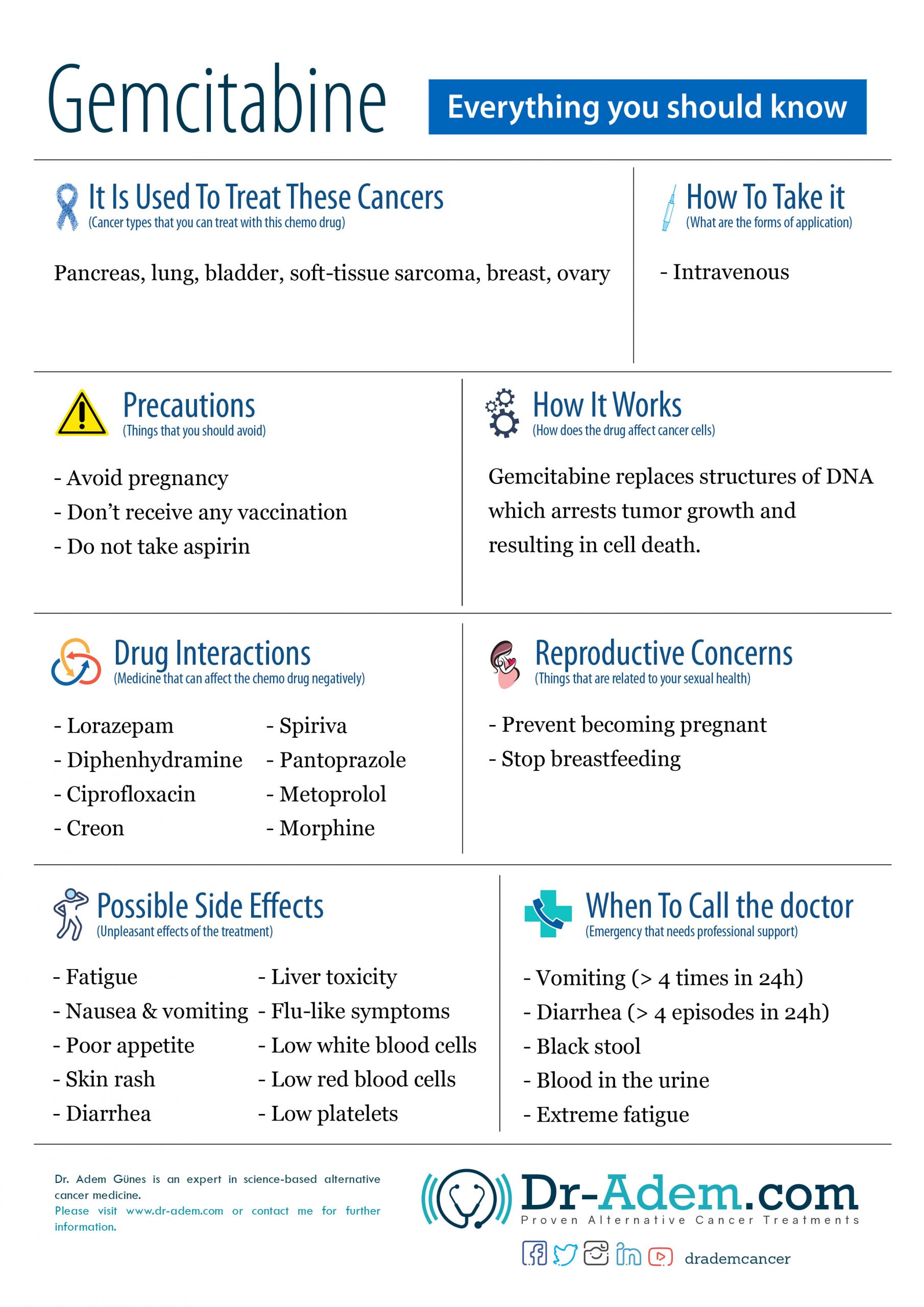Fact Sheet – Everything You Should Know
In this Gemcitabine fact sheet, you’ll get to know about the precautions, usage, possible side effects, and the types of cancer that you can treat with this chemo drug.

Embed this Infographic on your site:
<a href='https://dr-adem.com/gemcitabine-fact-sheet/'><img src='https://dr-adem.com/wp-content/uploads/2019/11/Gemcitabine2-scaled.jpg' alt='Gemcitabine Fact Sheet'/></a>Here’s the Gemcitabine fact sheet to get detailed information about Gemcitabine
It Is Used To Treat These Cancers
(Cancer types that you can treat with this chemo drug)
- Pancreas
- Lung
- Bladder
- Soft-tissue sarcoma
- Breast
- Ovary
- Lymphoma
- Colorectal
How To Take it
(What are the forms of application)
- Intravenous (infusions usually take between 30 to 60 min)
Precautions
(Things that you should avoid)
- Avoid pregnancy
- Don’t receive any vaccination
- Do not take aspirin
Mechanism of Action of Gemcitabine
(How does the drug affect cancer cells)
Gemcitabine belongs to antimetabolite drugs (pyrimidine antagonists subgroup). It masquerades as a DNA base (units which when combined form the DNA strands) and is incorporated into the DNA as the new strands are being produced before the cell replication. These DNA strands which contain the gemcitabine are marked by the body as faulty and, therefore, stops the cell from further DNA synthesis. This process leads to apoptosis (programmed cellular death).
Drug Interactions
(Medicine that can affect the chemo drug negatively)
- Lorazepam
- Diphenhydramine
- Ciprofloxacin
- Creon
- Spiriva
- Pantoprazole
- Metoprolol
- Morphine
Reproductive Concerns
(Things that are related to your sexual health)
- Pregnancy prevention during and until 6 months after the treatment (men and women)
- Stop breastfeeding
- Consider sperm freezing if willing to bear children
Possible Side Effects
(Unpleasant effects of the treatment)
- Fatigue
- Nausea & vomiting
- Loss of appetite
- Skin rash
- Diarrhea
- Liver toxicity
- Flu-like symptoms
- Low white blood cells: raise the risk of bacterial infection
- Low red blood cells: can lead to fatigue, general lack of interest and drive to be active
- Low platelets: can lead to bleeding (nose, gums) and in extreme cases to internal bleeding (intestinal, brain, joints)
- Infertility
When To Call the doctor
(Emergency that needs professional support)
- Vomiting (>4 times in 24h): can lead to severe dehydration and electrolyte disbalance
- Diarrhea (>4 episodes in 24h): can also lead to severe dehydration and electrolyte disbalance
- Black stool: can be a sign of intestinal bleeding
- Blood in the urine
- Extreme fatigue: can be a sign of severe anemia (low blood cells)
- Fever > 37,8°C


